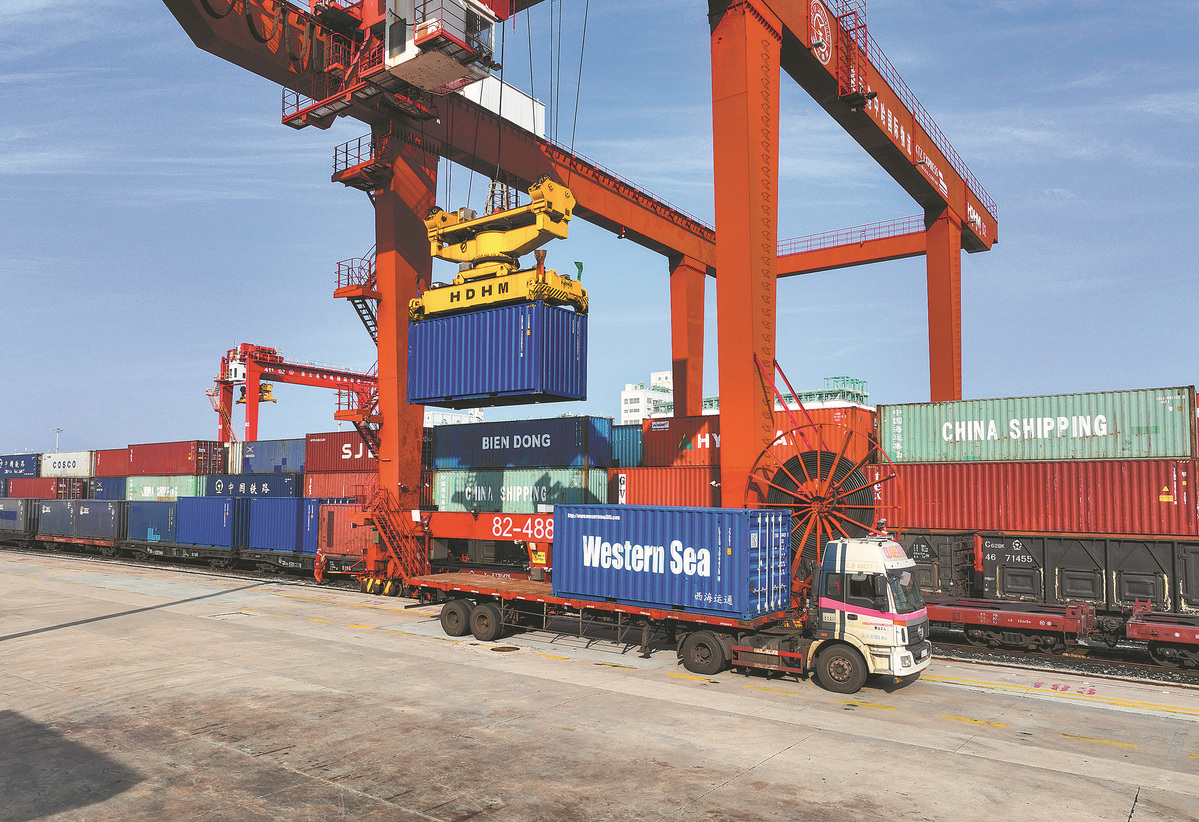Advancing Belt and Road a good omen


During his keynote speech at the China-Central Asia Summit last week in the ancient city of Xi'an, Shaanxi province, which has a rich history and splendid traditions of multiculturalism, President Xi Jinping suggested numerous factors for further systematizing, streamlining and strengthening the aims of greater regional connectivity, socioeconomic integration and eradication of terrorism.
Xi rightly upheld that promotion and implementation of the holistic policies of a community with a shared future, the Global Development Initiative, the Global Security Initiative and the Global Civilization Initiative are necessary for achieving the desired goals of regional peace, stability and harmony between China and the five Central Asian countries.
At the end of the summit, the leaders of China and the Central Asian countries signed the Xi'an Declaration of the China-Central Asia Summit. The declaration highlighted the readiness of all the participating countries to build a closer community with a shared future.
It is a good omen that the five Central Asian countries agreed to expand cooperation on the Belt and Road Initiative and coordinate their respective development strategies with the BRI.
The Xi'an Declaration is holistic and comprehensive. It covers all aspects of modern economic development, human survival, security and socioeconomic development, along with economic and transportation corridors, easy and smooth supplies of food and energy products, and connectivity between China and the five Central Asian countries.
It seems that Xi, the driving force of the China-proposed BRI, and Xi'an, the connecting hub of the initiative, have become a new regional as well as global "center of gravity", which will definitely enhance the prospects of regional peace, stability and harmony through greater regional connectivity.
Moreover, China stands for greater progress, prosperity, positivity and participation, which will further foster the true spirit of mutual cooperation, coordination and collaboration between both sides.
One of the most important features of Xi's speech was to further strengthen the concept of a China-Central Asia community with a shared future, which will be achieved through deepening strategic mutual trust and supporting each other's sovereignty, independence, national dignity and long-term development.
Furthermore, Xi focused on promoting the implementation of the Global Development Initiative, the Global Security Initiative and the Global Civilization Initiative. He also called for joint and sincere efforts to fully unleash cooperation potential in traditional areas, such as trade, industrial capacity, energy and transportation, and to foster new growth drivers in areas such as finance, agriculture, poverty reduction, low carbon, health and digital innovation.
China has a strong philosophical, psychological and political resolve and socioeconomic connectivity to deter the looming threats of foreign interference in domestic affairs, geopolitical games and geostrategic manipulations to stage "color revolutions", which should be met with zero tolerance of the "three forces of terrorism, separatism and extremism".
China also stands for the strengthening of good governance, multiculturalism, ethnic diversity and interfaith dialogue between China and the five countries in Central Asia, which would further promote a just political equation and socioeconomic harmony between the two sides in the future.
Further industrial development and investment would better facilitate all-around cooperation between China and the five Central Asian countries.
Trade facilitation, an upgrade of investment agreements with Central Asian nations along with an overhaul of cross-border freight volume with those countries, and fast, green channel clearance of agricultural products at all border ports between China and Central Asian countries would further enhance socioeconomic unity and geopolitical strength.
Hopefully, construction of a cross-Caspian Sea international transportation corridor and the construction of transportation hubs for China-Europe freight train services will further upgrade the capacity of existing ports between China and Central Asian nations.
Moreover, energy cooperation and green development can further diversify fields of cooperation between China and Central Asia.
For the further strengthening of business and economic cooperation, China will encourage competitive businesses to build overseas warehouses in Central Asia in order to further accelerate bilateral and trilateral business cooperation.
The author is executive director of the Center for South Asia and International Studies.

































